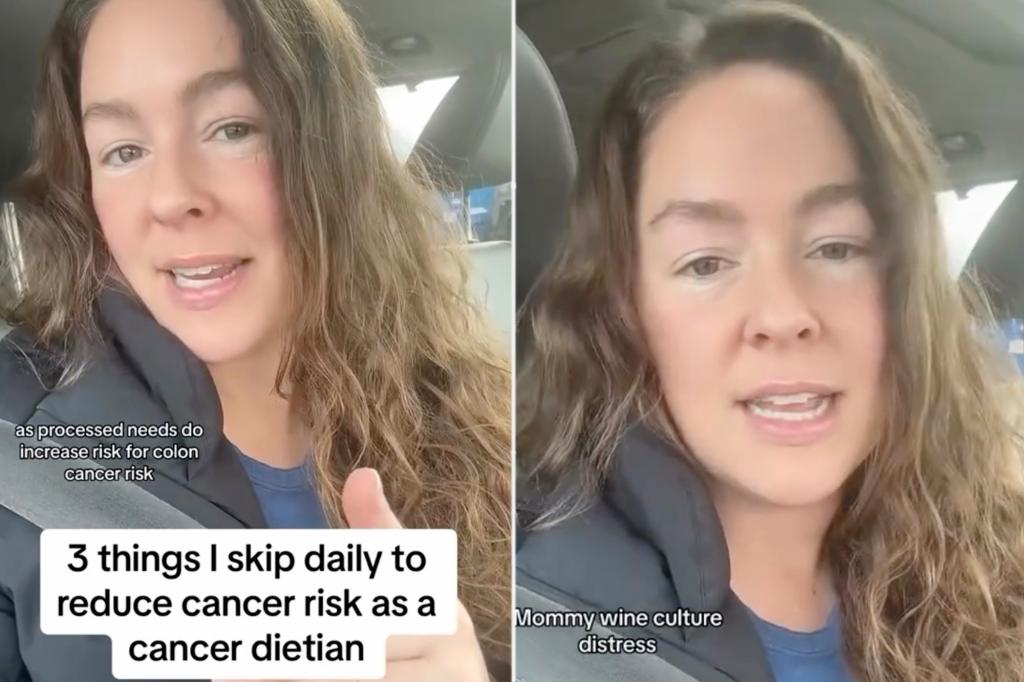Oncology dietitian Nichole Andrews believes that knowledge is power when it comes to reducing the risk of cancer, particularly colon cancer. In her recent Instagram post, she shared her concerns about three activities that may raise the risk of various cancers. As the US sees an increase in cancer diagnoses, Andrews emphasizes the importance of understanding simple ways to reduce risk and improve overall health on a daily basis.
The first activity Andrews avoids is consuming processed meats, which have been linked to an increased risk of colorectal cancer. Processed meats such as deli meats, sausages, hot dogs, and bacon have been classified as “carcinogenic to humans” by the World Health Organization due to evidence from epidemiological studies. The heme, nitrates, and nitrites in processed meats can damage cells in the bowel, while cooking at high temperatures can produce chemicals known to cause cancer in animals.
Another activity Andrews steers clear of is drinking alcohol, as it has been linked to an increased risk of at least seven types of cancer, including breast, bowel, liver, and throat cancer. US Surgeon General Vivek Murthy recently called for warning labels on alcohol containers to inform consumers about the risks. Alcohol consumption can raise levels of estrogen and other hormones associated with breast cancer, and the metabolization of alcohol in the body can produce a chemical that damages DNA and potentially leads to tumors.
Andrews also advises against loading up on supplements to reduce cancer risk, as high doses of certain supplements have been linked to an increased risk of cancer. For example, beta-carotene supplements in large doses have been associated with a higher risk of lung cancer in smokers. Andrews emphasizes the importance of getting all essential nutrients from food rather than relying on supplements, and only taking supplements when recommended by a doctor.
Overall, Andrews’ focus is on preventing cancer through simple lifestyle changes that can have a significant impact on overall health and well-being. By avoiding processed meats, alcohol, and excessive supplements, individuals can reduce their risk of various cancers. With rates of colorectal cancer on the rise among younger adults in particular, Andrews’ message of knowledge and empowerment is more important than ever in the fight against cancer.
In conclusion, oncology dietitian Nichole Andrews urges individuals to educate themselves about the links between diet and lifestyle choices and cancer risk. By avoiding processed meats, alcohol, and excessive supplements, individuals can take steps to reduce their risk of certain cancers. Andrews emphasizes the importance of obtaining essential nutrients from whole foods rather than relying on supplements, and encourages individuals to prioritize their physical and mental health through simple lifestyle changes. In a time when cancer rates are increasing across the US, Andrews’ message serves as a reminder of the power of knowledge and empowerment in the fight against cancer.


